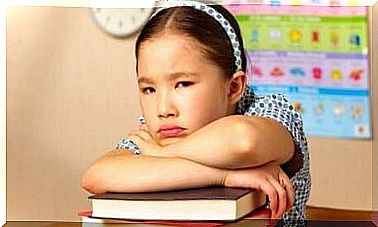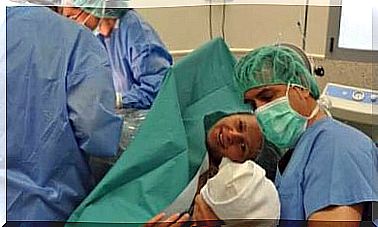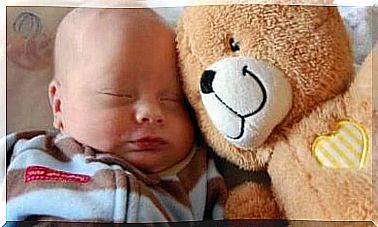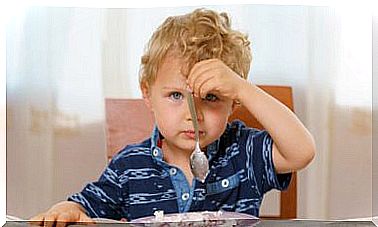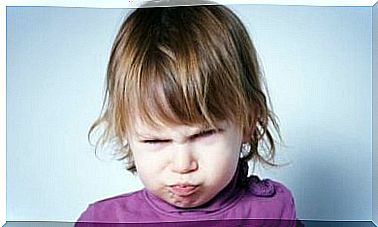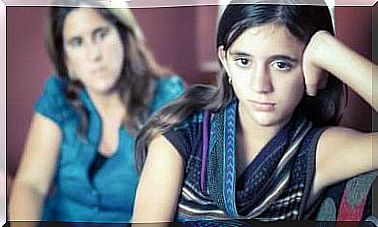What Is Pediatric Psychology?

Pediatric psychology specializes in the study of the psychological processes of childhood, which are part of childhood development. Its origin, which dates back to the 19th century, has its roots in the biological theory. However, over the course of the twentieth century it expanded the range of its analytical tools by employing theories such as those of psychoanalysis, cognitive psychology and constructivism.
The contributions of Jean Piaget, with his theory of learning, have defined the direction followed by pediatric psychology . This Swiss psychologist, in fact, has dedicated his research activity to the investigation of the stages of childhood development. He offered a description of how children perceive themselves and the world, from birth to adolescence.
How pediatric psychology approaches the study of the child
Conceiving the child in its complexity, this discipline includes the motor, linguistic, emotional, perceptive, physical, cognitive and social characteristics of the child. Pediatric psychologists can follow one scientific current or another, making use of the contributions of each theory in their interventions.
In this way, pediatric psychology addresses the way in which each developmental stage operates in each child or, vice versa, by establishing parameters and codes (in general, leaving room for a large margin of relativity) in the context of childhood mental health.
Likewise, pediatric psychologists approach each child within his or her environmental context. Naturally, in formulating a diagnosis and defining a treatment, it is essential to know and treat the environment. Consequently, the practitioner must establish:
- How the variables given by the context (family, school) and the biological characteristics (genetics) converge in the determination of infantile behavior.
- How environmental changes affect a child’s mental health.

Some notions of Piaget’s cognitive theory
To understand pediatric psychology it is necessary to know how it was formulated by the cognitivist Jean Piaget. Basically, this theorist postulates that, at any age, the child naturally acquires the ability to solve certain problems: motor, cognitive and emotional.
For Piaget, the evolutionary stages are to be understood as cognitive structures. These foundations develop over time always following the same order. According to this line of thought, however, it is not a question of focusing on the age of the subject, but of making sure that the various evolutionary stages follow one another without overlapping. Likewise, each stage must harmoniously integrate with the one that follows it.
The child development stages set out by Jean Piaget are the following:
- Sensory-motor stage (0 to 2 years). The child learns about the world and his abilities through the senses.
- Pre-operative stage (2 to 7 years). The child is able to make use of symbolic thinking, which allows, among other things, to develop the ability to speak. However, thinking continues to be self-centered during this phase; in other words, the child understands the world exclusively through his or her point of view.
- Operative-concrete stage (from 7 to 12 years). The child is capable of making logical deductions and employing deductive principles. Comparative operations such as reversibility and serialization are some of the acquisitions of this stage. However, abstractions are still excluded from this “school period”.
- Operative-formal stage (from 12 years onwards). It is in adolescence and adulthood that the subject acquires the ability to formulate hypotheses and projections and to carry out formal operations.
Current Trends in Pediatric Psychology
Nowadays, cultural changes happen at a dizzying pace and children exhibit very different behaviors from those adopted by children 100 years ago. Consequently, it is possible to hear pre-made phrases such as “anxiety disorder”, “attention deficit”, “sleep disorder”, depression or, in a more global sense, “autism spectrum disorder”.
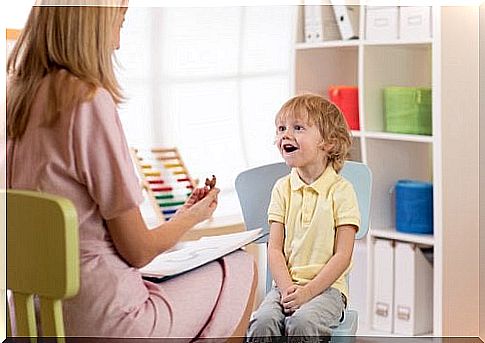
These dysfunctions prevent children from meeting certain standard norms. Traditional theories of pediatric psychology are constantly being revised and updated, so that they can adapt to the needs presented by more recent generations.
The omnipresence of technology, the crisis of the hetero-patriarchal family and the creation of new ways of building families require innovative theoretical approaches that originate from pediatric psychology.
Consequently, different ways of seeing things derive from all this, which in turn can evolve within pedagogy, schools and teaching centers. In conclusion, an outdated definition of childhood is bound to create an unbridgeable gap between the new and old generations. For this reason, in their approach to the world of childhood, many experts apply parameters of a scientific nature, trying to reduce this distance as much as possible.
